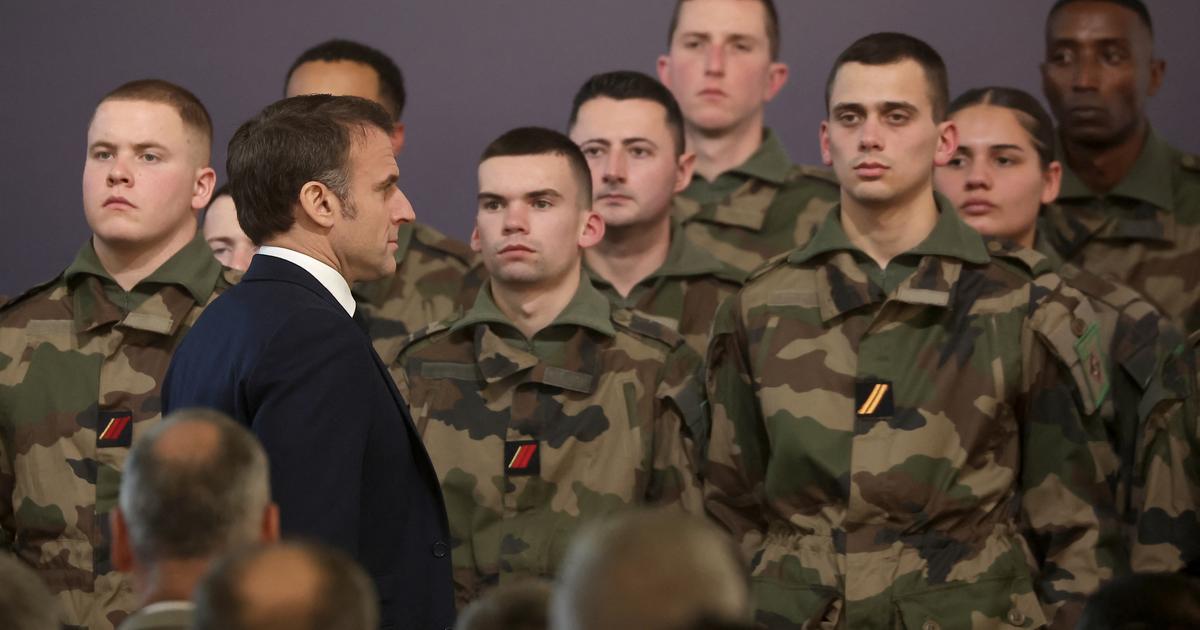Icon: enlarge
"Please put on your mask": Sign in a bar
Photo: Kay Nietfeld / dpa
It is the week of position papers: After leading scientific organizations in Germany spoke up on Tuesday, the National Association of Statutory Health Insurance Physicians (KBV) published another paper on Wednesday that is supported by a number of medical societies.
However, the positions of the two papers could not be more different:
The German Academy of Sciences Leopoldina, the German Research Foundation, the Fraunhofer Society, the Helmholtz Association, the Leibniz Association and the Max Planck Society referred under the heading "The situation is serious" to the fact that contacts are reduced by 75 percent would have to be in order to enable contact tracing again and to prevent a significant increase in those in need of treatment in hospitals and in the number of deaths (here).
The KBV and its supporters - including the German Association of General Practitioners and the National Association of Specialists in Germany, to which numerous federal associations belong -, on the other hand, plead in four key theses for concentrating on the protection of risk groups and communicating the hygiene measures already in place in a more targeted manner (here).
The KBV paper was presented at a press conference with KBV boss Andreas Gassen, the Bonn virologist Hendrik Streeck, the Hamburg virologist Jonas Schmidt-Chanasit and the deputy chairman of the KBV, Stephan Hofmeister.
The timing should not have been a coincidence: The event took place shortly before another shutdown was announced.
In their deliberations, the federal and state governments have now decided that gastronomy as well as cultural and leisure facilities should be closed for four weeks from Monday.
In this mixed situation, the appearance of the experts caused a lot of irritation.
The overview of the core theses of the paper, which is referred to as the "common position of science and the medical profession" as well as central points from the press conference.
Shutdown is neither expedient nor feasible
"A blanket lockdown regulation is neither expedient nor implementable," said KBV boss Gassen.
At this point it would first have to be defined what exactly the goal is.
When it comes to curbing the spread of the virus and thus protecting large parts of the population from infection and illness, Gassen has to be clearly contradicted: The experiences from Germany, Italy and many other countries in the spring, where contact restrictions or even curfews applied , show that a shutdown or lockdown can effectively interrupt chains of infection - the number of infected people fell significantly.
The question, however, is whether there is no alternative to shutdown.
As counter-proposals, the experts provide "Commandments instead of prohibitions" and the traffic light system.
When asked repeatedly at the press conference about concrete solutions, they had no concrete suggestions.
Viola Priesemann from the Max Planck Institute for Dynamics and Self-Organization in Göttingen had made it clearer in a discussion with journalists: "We now have two options," explained Priesemann.
"Either we approach the stress limit of the hospitals and then shimmy along with permanent restrictions on public life, or we push the numbers down so much with short, strong measures that we can control outbreaks again."
Gassen is right, however, when he speaks of lasting damage to society, culture and the economy.
The restrictions have shown that too: the shutdown in spring brought far-reaching financial consequences for various population groups.
According to a survey, 37 percent of households are financially worse off than before due to the corona crisis.
One in five complains of financial losses of 30 to 50 percent.
The psychological effects of the corona crisis are also increasingly coming into focus.
Commandments instead of prohibitions
"We rely on commandments instead of prohibitions, on personal responsibility instead of paternalism. Prohibitions or paternalism have a short half-life and do not correspond to our understanding of a free, democratic basic order," says the position paper.
Virologist Streeck said in the press conference that it will be a marathon and not a sprint and "therefore it is important that we talk about commandments, that the mask is sexy, for example, that we have a way of allowing a life without endangering other people ".
Schmidt-Chanasit explained that the AHA-L rules and the Corona app are sufficient in the opinion of the specialist group if they are consistently implemented and enforced.
For months now, everyone has been appealed to, they should strictly abide by the rules, restrict their contacts - and especially now restrict their contacts even more.
But in many places this is obviously not enough to effectively contain the virus.
And at this point politicians have to decide whether they would rather just ask and accept overcrowded intensive care units in a few weeks - or whether they would impose more severe restrictions.
The leading scientific organizations also plead for real restrictions in their statement on Tuesday.
"In order to be able to prevent a similar course of the pandemic as in many neighboring countries, clear decisions must now be made and implemented quickly," it says.
The earlier and more consistently this happens, the shorter the restrictions could be. "A completely different tone than in the statement by the KBV.
Focus on protecting risk groups
While Sars-CoV-2 has spread mainly among younger people in recent months, the infection rate among older people is also increasing again with the increasing number of cases.
In addition to the chronically ill, they are considered to be the most important risk group, and most virologists worldwide agree that protecting them has a special priority.
Alone: What should it look like?
In the position paper, the signatories name four points that they consider necessary to protect risk groups:
1.
Visitors to retirement homes and clinics are only allowed access after a negative rapid antigen test:
This would be desirable in order to prevent residents and patients from being isolated against their will.
The problem, however, is: So far, rapid antigen tests are not yet widely available and are therefore a long way off.
2.
The staff is tested regularly: this
is far from being routine.
In view of the increasing number of tests and the threat of capacity problems, a decision would have to be made here about who is to be tested in the population - and who is not.
3.
Staff and visitors wear FFP2 masks:
the better the filter function of the mask, the greater the protection.
Why the experts recommend FFP2 masks and not the - even more effective protective - FFP3 masks is unclear.
Availability may also be questionable.
4.
Neighborhood help for people from risk groups should be established and people in self-isolation should be supported:
Most people who belong to the risk groups do not live in nursing homes.
They regulate their everyday life themselves. The idea is inherent in the proposal that these people should now isolate themselves very strongly, for example by having the weekly grocery shop put in front of the door through neighborhood help and otherwise remaining self-isolated.
Whether it is humanly right to demand greater sacrifices from those who are at greater risk is certainly a matter of debate.
This does not take into account all those who belong to the risk group but cannot completely isolate themselves because they or the people they live with are employed.
One traffic light for everything
The position paper calls for a nationwide uniform traffic light system to be introduced, by means of which the current situation can be recognized at a glance, both at federal and district level.
It should not only be based on the number of new infections, but should contain "all relevant key figures such as the number of infections, the number of tests carried out, inpatient and intensive care treatment capacities".
In this way, it should indicate early on that the health system is overloaded and enable a good assessment of the risk situation for risk groups.
Virologist Streeck said at the press conference that just looking at the number of infections was not enough.
But again too late to look at the intensive care beds.
Gassen emphasized: "You can't say that the infection numbers don't interest us."
In fact, since the beginning of the coronavirus pandemic, there has been a struggle to capture the current situation as best as possible with various key figures - for example, at the beginning one looked at the doubling rate or the number of reproductions, when the numbers rose rapidly.
The 7-day incidence was later classified as the more relevant variable.
And it makes a difference, for example, whether a hundred newly infected people are between 20 and 30 years old or whether they are all 70 years or older.
In the latter case, one has to reckon with a significantly higher proportion of severe courses, i.e. with patients who have to be cared for in hospital or intensive care.
The fact that local measures are currently being implemented solely on the basis of new infections, however, is due to a real bottleneck: Above a certain value, the health authorities can no longer systematically track contacts.
If you don't suspect that you might be infected, you can infect other people when in doubt.
Those who have been informed and have isolated themselves are not.
A central overview of important key figures would certainly be helpful.
But the overview alone does not prevent further infections: That is what the measures derived from it do.
Move away from containment "alone" through contact tracing
An important part of the German strategy for pandemic containment is contact tracking.
The health authorities must find all contact persons for corona-positive people as quickly as possible and order quarantine so that they cannot infect anyone.
This strategy is no longer tenable in the current pandemic, it said at the press conference and so it is in the position paper.
"In the summer months we did not manage to fully follow up the contacts and completely contain the pandemic," said Hendrik Streeck.
In autumn, contact tracking should therefore not be the only means of combating the pandemic.
However, contact tracking was never "the only means".
The RKI has repeatedly preached in recent months that the most important pillars of fighting pandemics are a trio - and only work as such: containment - protection - impact mitigation.
Since a single measure was never introduced, but rather several measures at the same time, it is impossible to assess the impact of an individual measure.
However, the RKI has always described the means of contact tracking as very important.
Therefore, the health authorities have been overloaded for months.
And KBV, Streeck and Schmidt-Chanasit are right: The effects of the pandemic not only affect companies that have to close temporarily or the intensive care units, but also other areas.
The health authorities in Germany work seven days a week in shifts in order to keep track of all contacts of infected people.
The number of those who tested positive has now doubled compared to the spring.
This also affects the contacts.
How the health authorities should manage this for longer is actually questionable.
Streeck's suggestion that those who tested positive should inform their contacts independently does not seem so bad at first.
As an example, he cited Great Britain, where the independent information of sexual partners who have potentially been infected with a sexually transmitted disease seems to work well.
There's only one catch: you usually know who you've had sex with in the past 48 hours.
But how do you find out who was sitting next to you in the restaurant or which people in the gym were in the same locker room?
Contact tracking is therefore likely to remain an important tool in fighting pandemics.
Opposite position to sham arguments
It seemed like a rhetorical trick that authors and speakers repeatedly built up pseudo arguments and then invalidated them again.
It was repeatedly heard that it had not yet been made clear that people had to learn to live with the virus.
The virus will "not disappear as if by magic," said Gassen.
Counter question: Who ever said that?
"Virology: The coronavirus will not go away in the summer", headlined SWR2 on May 7th.
SPIEGEL wrote six days later: "Corona pandemic:" Summer will not make the virus go away. "" WHO: Coronavirus may never go away again "- various newspapers and online editorial offices reported something like this in mid-May.
"Hamburg virologist on corona vaccine:" We have to learn to live with the virus ", headlined the editorial network Germany on July 3, quoting Schmidt-Chanasit." Coronavirus: The virus came to stay, "wrote" Zeit Online "on August 15th.
Conclusion:
If you take seriously the statement made by the experts in the press conference that they want to convince as many people as possible to do their part to contain the virus, they have done this goal a disservice with their appearance.
Icon: The mirror















